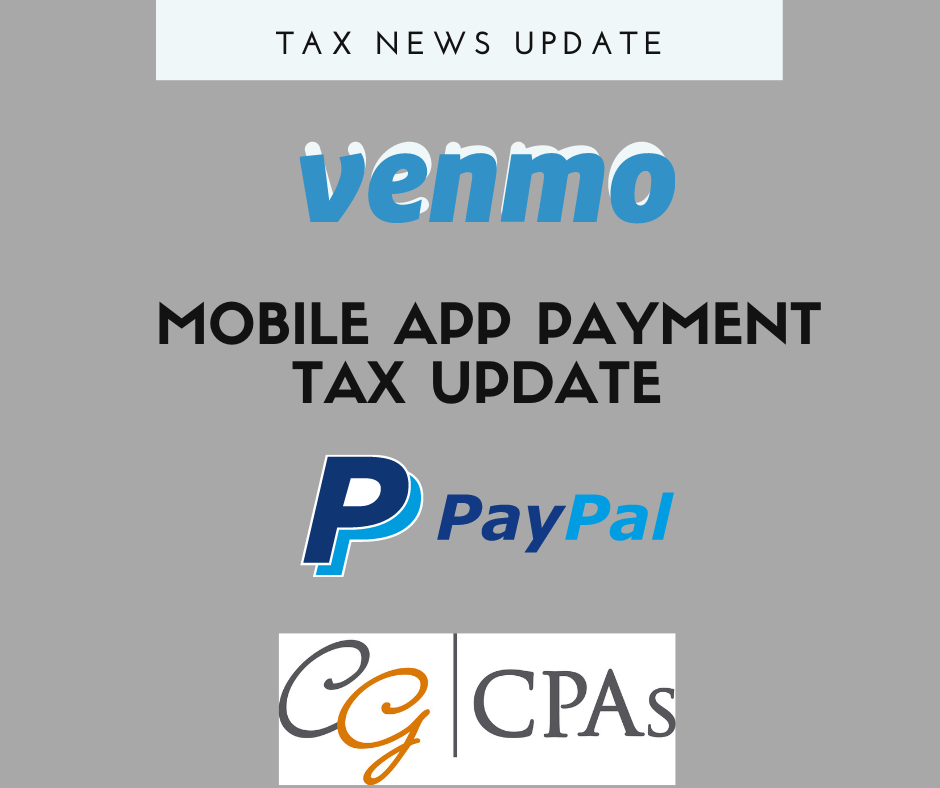Using Venmo, PayPal or any other Cash Application?
Mobile payments apps are becoming increasingly more popular. They offer easy accessibility for businesses and consumers to make and receive payments. If you are using this form of payment, there is some information you need to know regarding how it can affect your taxes.
- Beginning with tax year 2022, third party payment network providers will be required to send users a form 1099-K. if annual totals are $600 or more.
- All business transaction earnings should be reported even if you do not cross the threshold.
- Detailed records are important and should be a consistent system to represent income and expenses for your business separately from any personal transactions.
- Business expenses require more than just proof of payment through the mobile apps. An invoice, receipt, etc. is required as well.
- Businesses are still required to report any payments received through Venmo and PayPal as taxable income when filing taxes.
- Form 1099-K may include taxable and non-taxable income
- You will receive the form through the third-party service provider.
- Additional information may be requested.
- The form reports the total gross income in Box 1a received during the year without considering any adjustments, discounts, or refunds
- Funds received from friends or family as a reimbursement, or a gift can be excluded from your income.
Keeping good records is essential for managing your business and filing your taxes. These records will be beneficial should you need them to prove income and in an IRS audit. Ideally, keeping a separate business account is recommended to keep personal and business separate when utilizing these third-party cash apps.

